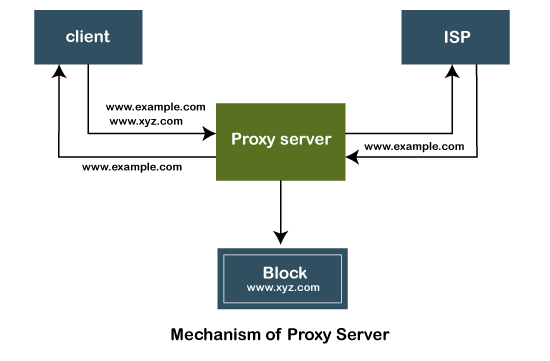The Journey of a Proxy Server: From Incoming Requests to Outgoing Responses
In the current digital landscape, proxies play a critical role in improving privacy, security, and accessibility while traversing the immense ocean of the Web. But, what exactly is a proxy server, and how does it work? Basically, a proxy acts as an intermediary between your device and the websites you want to visit. By directing your internet traffic through another server, it can mask your IP address and help safeguard your identity online. This functionality opens up a world of possibilities for users, from enhancing online safety to overcoming geographical restrictions on content.

Nevertheless, the advantages of using proxies extend far beyond mere anonymity. Businesses leverage them to bolster cybersecurity, while individuals utilize them to access streaming services and online gaming with more ease. Moreover, the realm of data scraping and competitive intelligence has seen proxy servers become invaluable tools for data collection. Understanding the various types of proxy servers—such as HyperText Transfer Protocol, Socket Secure, or home proxies—along with their unique benefits and drawbacks, can enable users to make educated decisions about their online strategies. From non-professional users to enterprise-level organizations, the life of a proxy is integral to shaping our interconnected digital experiences.
Understanding Proxy Servers
Proxy servers function as middlemen between individuals and the web. When a user makes a demand to reach a website, the call is first sent to the proxy server, which then routes it to the intended web page. The website's feedback goes back to the proxy before getting to the user. This process hides the client's original IP address, enhancing security and permitting for the modification of calls and responses.
There are various types of proxy servers, each having different functions. HTTP proxies handle web traffic, while SOCKS servers can manage any form of information, making them flexible for various uses. Clear servers, on the other hand, do not change requests or replies but can be used for caching content or screening. Grasping these variations helps clients choose the right proxy for their specific needs.
The function of a proxy server extends outside simple anonymity; it also serves a significant part in safety and performance. By acting as a buffer, proxies can block harmful content, block unwanted traffic, and safeguard against internet threats. Additionally, they can improve broadband speed by storing frequently accessed information. As internet activities continue to increase, the importance of proxies in maintaining protection and effectiveness cannot be overlooked.
Benefits and Drawbacks of Using Proxies
Using proxies offers several significant advantages. One of the primary benefits is enhanced online security. By concealing your IP number, proxies help you protect your anonymity while surfing the internet, which is especially useful for safeguarding personal data from marketers and possible malicious actors. Additionally, proxy servers can help users bypass geo-restrictions, providing access to content that might be otherwise in their area, such as certain streaming services.
However, employing proxy servers also comes with specific risks. Not all proxies are reliable, and some may monitor your online activity, posing a risk to your privacy instead of protecting it. Complimentary proxy services, in particularity, often compromise user security, likely exposing sensitive data to third parties. Furthermore, relying on inconsistent proxy servers can lead to lagging internet speeds and instability, adversely impacting your overall browsing experience.
Another crucial point is the potential for misuse. Some users may exploit proxies for malicious purposes like scraping data from websites without permission or participating in other improper online activities. This can not only result in legal ramifications but also subject the user to penalties and penalties from websites. Therefore, while Omeka.net can be a effective tool for improving privacy and security, users must be vigilant and choose trustworthy services to reduce associated risks.
Proxies in Business and Media
In the business world, proxies play a critical role in enhancing cybersecurity measures. Organizations utilize these proxies to monitor internet traffic, ensuring that workers adhere to web access policies while also protecting sensitive data. By routing requests through a secure server, organizations can filter out malicious content and block access to potentially hazardous sites, creating a safer online environment. This not only helps in mitigating the risk of cyber attacks but also improves overall productivity by reducing disturbances.
In the realm of entertainment, proxies are instrumental for users wanting to access region-locked content. Streaming platforms often limit access based on a viewer’s location, but with the use of proxies, individuals can bypass these restrictions seamlessly. Proxy servers allow users to mask their IP addresses with one from a alternative region, granting them access to unique shows, movies, and live events that may not be available in their location. This capability enhances the watching experience and opens up a wide library of content that many want.
Moreover, proxy servers can greatly improve the performance of web tasks such as gaming and streaming. They can reduce latency and latency, ensuring a more seamless experience for gamers who rely on instant interactions or quick data transfer. Companies also benefit from this improved performance, as proxy servers can help in data scraping and market research by managing many requests simultaneously without overwhelming the servers they target. This dual benefit of enhanced performance and security makes proxies a valuable tool in both business and entertainment settings.